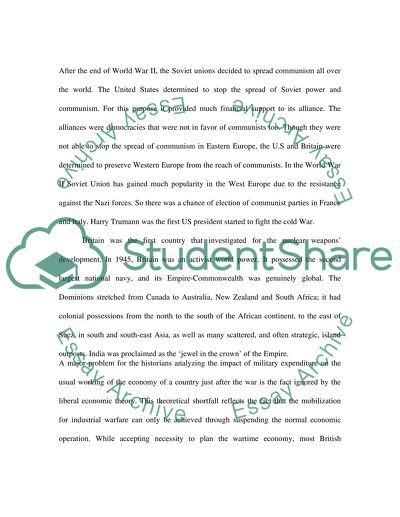Cite this document
(“Cold War Essay Example | Topics and Well Written Essays - 2250 words”, n.d.)
Retrieved from https://studentshare.org/politics/1505825-cold-war
Retrieved from https://studentshare.org/politics/1505825-cold-war
(Cold War Essay Example | Topics and Well Written Essays - 2250 Words)
https://studentshare.org/politics/1505825-cold-war.
https://studentshare.org/politics/1505825-cold-war.
“Cold War Essay Example | Topics and Well Written Essays - 2250 Words”, n.d. https://studentshare.org/politics/1505825-cold-war.


